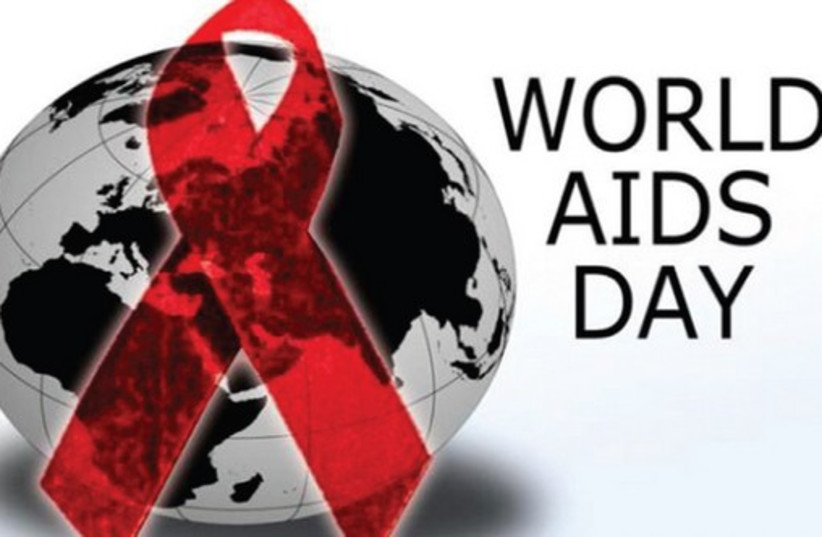The number of Israelis newly infected with AIDS/HIV in 2021 was 367, according to the Health Ministry, which released its statistics for World AIDS Day on Thursday. This is a 0.8% increase in the number compared to 2020.
The incidence rate here thus remained stable compared to 2020 and stands at 3.9 cases per 100,000 people in the population. This steady rate follows several years of declining new HIV cases. From 1981 until the end of 2021, some 11,139 cases of HIV carriers and AIDS patients were diagnosed in Israel. During this period, there were 1,746 deaths reported to the Health Ministry.
According to the World Health Organization, about 1.5 million HIV carriers were diagnosed worldwide in 2021 – a slight increase compared to 1.45 million in 2020, which it said is probably due to the consequences of the COVID-19 crisis on accessibility to the health care system.
Last year, 650,000 people around the globe died from diseases defined as being related to HIV such as tuberculosis, recurrent pneumonia and lymphoma. By the end of last year, there were 38.4 million HIV carriers.
<br>HIV/AIDS prevention
This year, the ministry took steps to improve infection prevention and early diagnosis that included putting PrEP (Pre-Exposure Prophylaxis) medications in the basket of medications available to all who need it and are qualified. These pills significantly reduce the danger of being infected with HIV if exposed to the deadly virus.

The ministry set a 75% discount on the price to patients, with it now costing NIS 70 per month instead of NIS 210. It has also expanded testing of pregnant women for HIV to prevent their newborns from being infected during birth or from breastfeeding.
The ministry declared that one of the effective ways to prevent HIV and other sexually transmitted diseases is to use a condom for casual sex.
